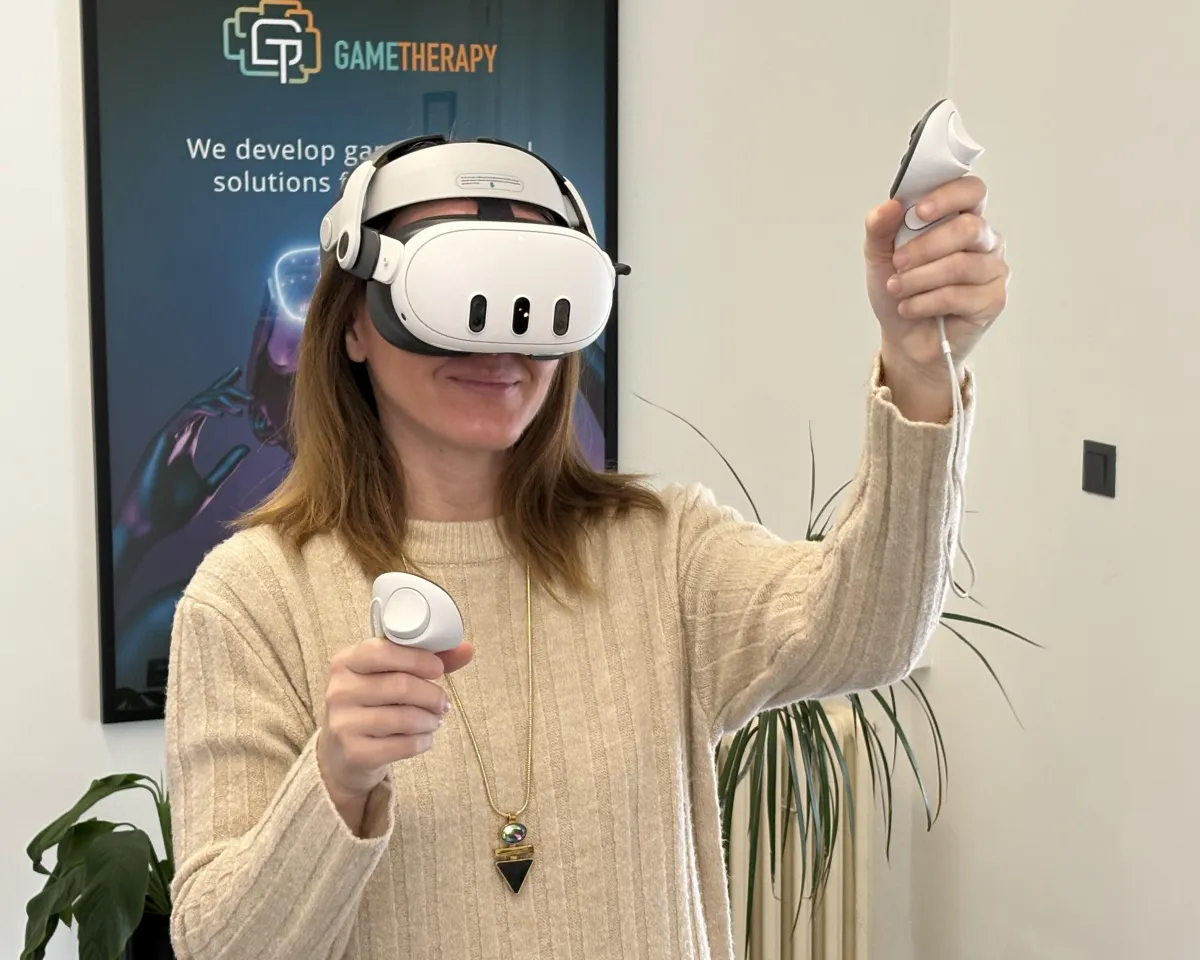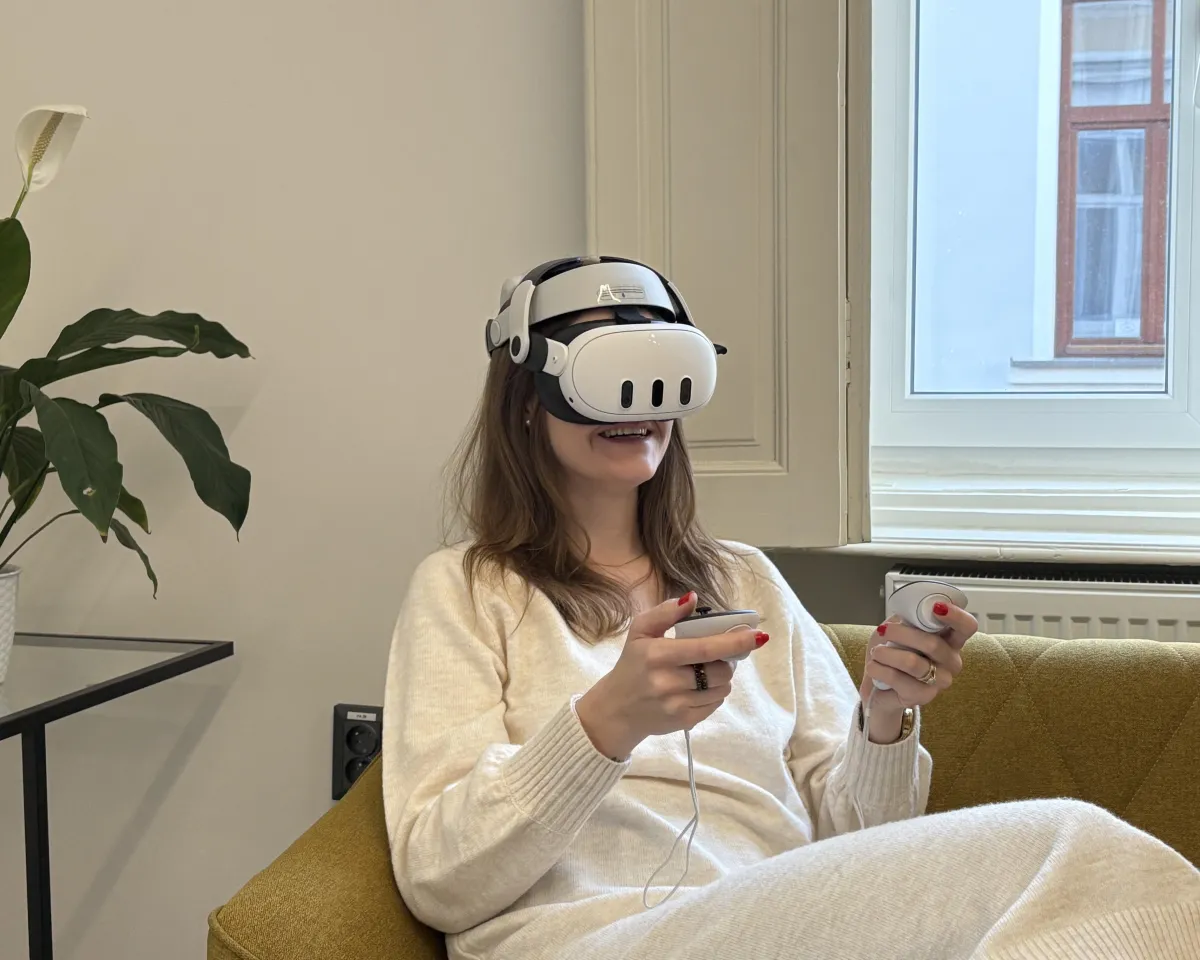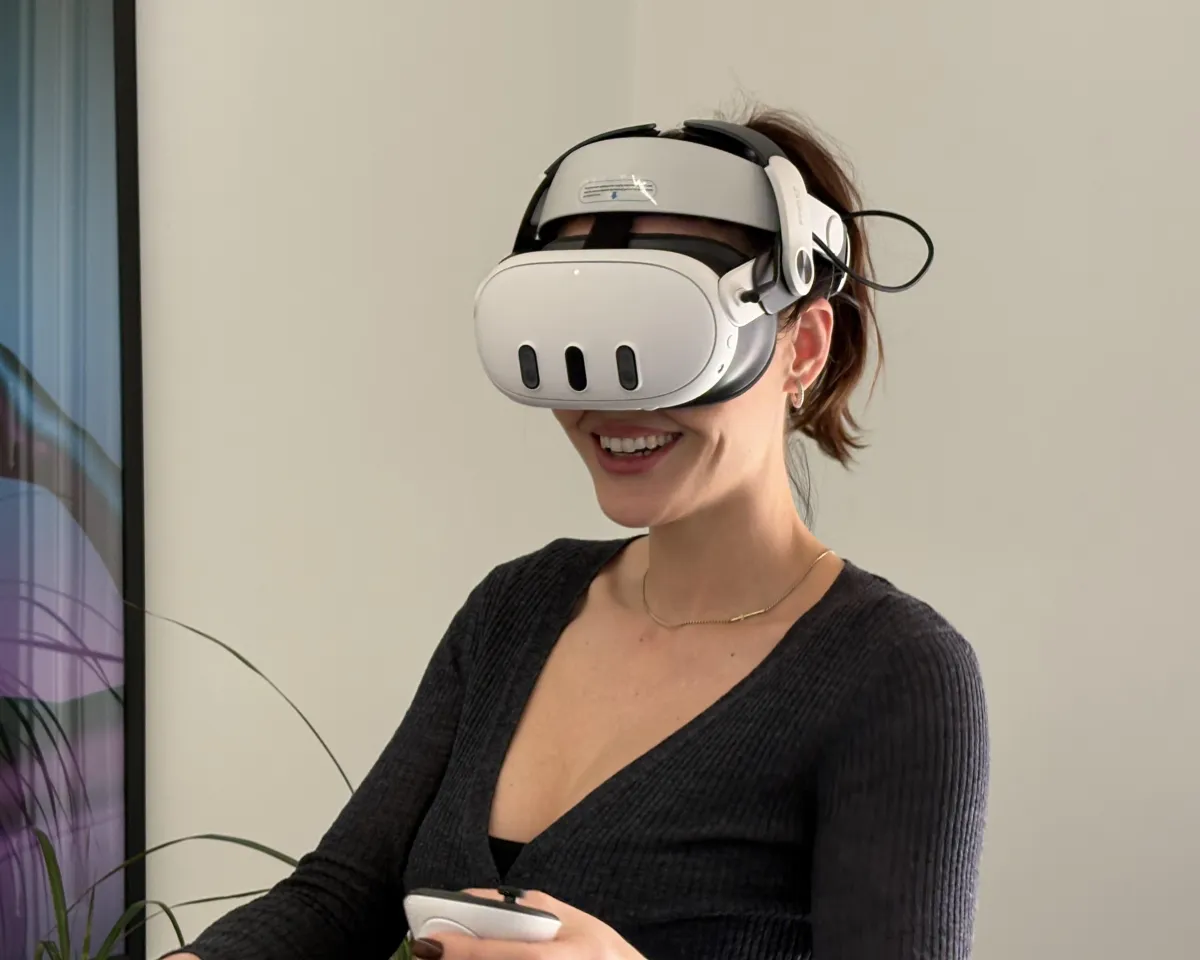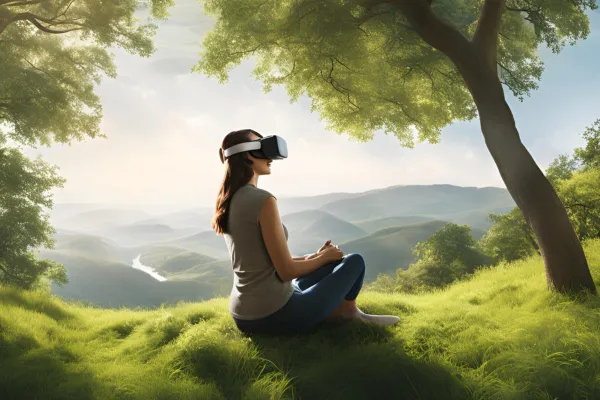BRIDGING RESEARCH, TECHNOLOGY, AND THE GAMING WORLD
Your partner in cutting-edge software development
Our mission is to transform human well-being and human-computer interaction. We do this by integrating virtual reality, augmented reality, and artificial intelligence technologies. At the heart of our philosophy is game-therapy. We create innovative, scientifically grounded, yet playful solutions for a wide range of challenges.

IMPACTFUL TOOLS FOR A BETTER QUALITY OF LIFE
Our products
ClaustrOFF
A game created with cutting-edge research to help you overcome fears in a safe, engaging, and effective way
NeuroBoostVR
Innovative exercises for seniors and others to improve motor skills, balance, and orientation with simple, effective activities
VIRADIA
Virtual Reality Platform for Early Diagnosis of Neurodegenerative Diseases, Revolutionizing Neurological Diagnostics
Experience the full power of VR for positive well-being
With a commitment to innovation and the transformative power of VR, we aim to make a lasting impact on mental health, education, industry, and personal growth, all grounded in scientific research and designed to enhance well-being worldwide.

GROWTH THROUGH INNOVATIONS
The GAMETHERAPY model
We harness the power of new technologies. By making care and training more accessible and tailored, we empower individuals and organizations to thrive. Rooted in scientific research, our innovative approach drives meaningful change, transforming mental health, education, healthcare, industry, and personal growth on a global scale.
SOLUTIONS THAT MAKE AN IMPACT
Immersive solutions for mental health and beyond
Our primary focus is on creating immersive applications that empower individuals to overcome challenges like anxiety, phobias, and neurological conditions. These solutions are designed to enhance well-being and unlock potential across various aspects of life, showcasing our expertise in innovative and impactful technologies.
Engaging VR/AR solutions for soft skills training
Evaluation in neurology and rehabilitation
General education
Personal development
Industrial training
Industry 5.0 applications

Join the Mind Heaven Community!
Be part of our journey to transform mental health care and well-being through innovation and gamification. By signing up, you’ll gain access to exclusive psychological content, enjoy discounts on our products, and stay updated with the latest news about our projects. You’ll also discover unique content like game stories and behind-the-scenes insights into our app development process. We value your ideas and feedback to make our games even better. Join us, become a co-creator, and help shape the future of the Mind Heaven Community!

VR Therapy for Anxiety: A Comprehensive Guide
VR Therapy for Anxiety: A Comprehensive Guide

"Virtual reality is revolutionizing mental health care, making treatment for anxiety accessible, engaging, and effective like never before." – Dr. Martin Polák
Anxiety affects millions of people worldwide, disrupting daily life and diminishing overall well-being. Traditional treatments such as therapy and medication often work well but may not be accessible or appealing to everyone. In recent years, Virtual Reality Therapy (VR Therapy) has emerged as a groundbreaking solution, offering an innovative, evidence-based approach to managing anxiety.
In this comprehensive guide, we’ll explore what VR therapy is, how it works, its benefits, and how you can access it to improve your mental health.
What Is VR Therapy for Anxiety?
Virtual Reality Therapy uses immersive technology to simulate realistic environments where patients can confront and manage anxiety triggers in a safe and controlled setting. This method builds on established psychological techniques like exposure therapy and cognitive-behavioral therapy (CBT).
By donning a VR headset, individuals can practice calming techniques, face phobias, or simulate stressful situations, all while being guided by a therapist or using an AI-powered system.
How Does VR Therapy Work?
Assessment Phase
The process starts with an assessment of the individual's anxiety triggers and symptoms. This helps tailor the VR experience to their specific needs.Immersive Exposure
The patient enters virtual environments that mimic anxiety-inducing scenarios, such as public speaking, flying, or crowded spaces. These scenarios are gradually intensified to build resilience over time.Skill Building and Feedback
In the VR environment, individuals practice stress-management techniques like deep breathing or mindfulness exercises. They receive immediate feedback, allowing them to track their progress.Therapeutic Guidance
A licensed therapist often supervises the sessions to help the patient process their experiences and integrate lessons into daily life.
Benefits of VR Therapy for Anxiety
1. Effective Exposure Therapy
VR therapy provides a safe space to confront fears without real-world consequences. Studies have shown that virtual exposure therapy is as effective as in-person methods, especially for treating phobias, PTSD, and social anxiety disorder.
2. Increased Accessibility
For those who lack access to traditional therapy or prefer not to attend in-person sessions, VR therapy offers a practical and private alternative.
3. Customizable Experiences
Therapists can tailor virtual environments to suit individual needs, creating personalized treatment plans that yield better results.
4. Engaging and Non-Invasive
The interactive nature of VR makes therapy more engaging, especially for younger individuals or those reluctant to try conventional treatments.
Scientific Evidence Supporting VR Therapy
Recent peer-reviewed studies validate the effectiveness of VR therapy:
A 2022 meta-analysis published in Journal of Anxiety Disorders concluded that VR exposure therapy significantly reduces anxiety symptoms, with long-lasting effects comparable to traditional therapy.
Research from the Journal of Cyberpsychology, Behavior, and Social Networking highlights that VR therapy improves engagement and retention rates among patients, making it a promising tool for long-term mental health care.
The American Psychological Association (APA) supports VR as a supplement to CBT, especially for treating anxiety disorders in diverse populations.
Is VR Therapy Right for You?
If you struggle with anxiety and traditional methods haven't been effective, VR therapy could be a game-changer. It is especially suitable for:
Individuals with specific phobias
Those experiencing PTSD
People with social anxiety
Patients seeking non-invasive, technology-driven solutions
Accessing VR Therapy
Find a Provider
Many clinics now offer VR therapy. Use online directories or ask your healthcare provider for recommendations.At-Home Options
Some platforms provide VR therapy programs that you can use at home with a VR headset. Popular options include apps like Psious and Limbix.Insurance and Costs
Check with your insurer to see if VR therapy is covered. While costs vary, many programs are competitively priced compared to traditional therapy sessions.
The Future of VR in Mental Health
As technology continues to evolve, VR therapy is poised to become a cornerstone of mental health care. Innovations such as AI-driven personalization, biometric feedback, and expanded virtual scenarios promise even greater efficacy in treating anxiety.
Final Thoughts
Virtual Reality Therapy is more than just a technological trend; it’s a powerful tool that is reshaping how we approach mental health care. By combining cutting-edge technology with proven psychological methods, VR therapy offers hope for millions grappling with anxiety. Whether used as a standalone treatment or in conjunction with traditional therapies, it holds immense potential to transform lives.
References
Carlbring, P., Andersson, G., et al. (2022). Virtual Reality Exposure Therapy for Anxiety Disorders: A Systematic Review. Journal of Anxiety Disorders, 82, 102-113.
Parsons, T.D., & Rizzo, A.A. (2021). Clinical Applications of Virtual Reality in Psychological Treatment. Annual Review of Clinical Psychology, 17, 495-525.
Wiederhold, B.K., & Wiederhold, M.D. (2021). Virtual Reality for Post-Traumatic Stress Disorder: A Review. Cyberpsychology, Behavior, and Social Networking, 24(3), 203-211.
American Psychological Association. (2023). Virtual Reality and Anxiety Disorders. www.apa.org
If you're ready to explore VR therapy for anxiety, now is the perfect time to take that first step toward a calmer, more balanced life.






